Those who have run for president, either successfully or not, play a curious role during new campaigns
By Kaleena Fraga
(to check out this piece in podcast form click here)
As the field of Democratic candidates running for president in 2020 begins to solidify, there is a heightened interest over who is meeting with whom. The New York Times recently published a piece entitled: Hillary Clinton Is Not a Candidate. She Looms Over 2020 Anyway. The paper also wrote about how former president Barack Obama has met with several Democrats running in 2020. Despite no longer holding office—despite, in the case of Clinton, losing her own bid for the presidency—figures like Clinton and Obama remain an important influence as the next big election looms.
So, historically, what role do former political stars—that is, either ex-presidents or those who got close to the presidency—play during a new presidential campaign?
The Role Ex-Presidents Play in Campaigns
During the 2016 campaign, there was much discussion about the unique aspect of Barack Obama’s post-presidency life. Obama, who was only 55 when he left office, left at a much younger age than most presidents. With his former secretary of state running, pundits speculated the ex-president would play a strong role in her campaign, and he did.
Addressing a group of black voters in 2016, Obama said:
“I will consider it a personal insult — an insult to my legacy — if this community lets down its guard and fails to activate itself in this election. You want to give me a good sendoff? Go vote.”
Obama campaigned, hard, for Clinton. This isn’t always the case when an ex-president is put in the position of campaigning for the new candidate of his party.
When Richard Nixon sought the presidency after serving eight years as Dwight D. Eisenhower’s vice president, the president was, at best, lukewarm. When asked about Nixon’s specific contributions during their partnership, Eisenhower fumbled the question.
Journalist: “if you could give us an example of a major idea of his that you had adopted in that role as the decider and the final, ah….”
Eisenhower: “If you give me a week, I might think of one—I don’t remember.”
His fumble later became an attack ad.
Of course, this gets to a larger point about vice presidents running for a term consecutive to their vice presidency. We already know that it can be tough to move from the vice presidency to the presidency. While candidates need the president they served to point to their accomplishments, the president leaving office often doesn’t want to suggest that big decisions were made by anyone except himself.
Case in point: Eisenhower, in the same press conference, also said: “No one can make a decision except me.”
Even Obama, while he campaigned on Clinton’s aptitude for the presidency, also tied her victory to his own legacy.
Ronald Reagan, similar to Eisenhower, offered a somewhat tepid endorsement of his vice president, George H.W. Bush, fumbling his vice president’s name of eight years while announcing his endorsement.
Then there is Harry S Truman. Truman, who had been out of office eight years when John F. Kennedy ran for office in 1960, launched himself into the campaign. Although he had his doubts about Kennedy’s youth, he campaigned hard.
Truman’s case is slightly different than the above—unlike Obama, Eisenhower, or Reagan, he leaped into a race nearly a decade after his own administration.
Certainly, the party powerful often lend a hand—but it is rare to have a president campaign, simply because most of them either haven’t lived long after their presidencies (see Eisenhower or LBJ), they were unpopular post-presidency (Nixon, Ford, Carter), or their vice presidents didn’t want to rely on their help to win.
Vice Presidents Who Want to Forge Their Own Path
If presidents are hesitant to relinquish their legacy to their vice presidents, then vice presidents can often be just as hesitant to use the same legacy as a step towards their own term in office.
In the election of 1992, the incumbent George H.W. Bush lost to Bill Clinton, ending twelve years of Republican power. Reports trickled out that Ronald Reagan and his wife, Nancy, were “upset, even angry” over how Bush had steered his campaign. According to their friends, they saw his campaign as “seriously flawed” not least because he had “failed to use Mr. Reagan as a campaigner until late October.”
This was, perhaps, because Bush had been haunted by Reagan’s legacy during his presidency. As the economy soured, a vice chairman for Goldman Sachs noted:
“”[Bush] was trapped by the Reagan legacy. Most Presidents can make changes when they come into office by blaming their predecessor. He couldn’t do that.”
Then again, Bush’s reluctance to use Reagan during his campaign could have less to do with wanting to define his political legacy apart from Reagan’s, and more with the fact that their partnership had been a “marriage of convenience.” Once their shared term ended, longterm tensions came out into the open.
“[Bush] doesn’t seem to stand for anything,” Reagan is reported to have remarked, eight months before the 1992 election. Reagan saw Bush’s performance as a reflection of his own legacy. Bush saw Reagan’s presence as a hindrance to his independence. His aides sneered that Reagan was “too senile” to make public appearances supporting the president.
The dynamic would be similar in the election of 2000 when the incumbent vice president, Al Gore, decided to run for president, following eight years of Bill Clinton’s White House. Gore and Clinton had a tense relationship during that campaign. For his part, Clinton wondered “why Mr. Gore was not making more of the successes of the administration.”
During a blunt exchange after Gore’s loss, Gore told Clinton that it was Clinton’s sex scandal and his low approval ratings that had eventually hobbled Gore’s bid for the White House.
Famous Losers in Presidental Campaigns
Presidents have a natural role in campaigns of their own party, even years after their own administrations—assuming, of course, that they are popular, and that the party or candidate wants their help. So what about the famous losers?
The questions seem especially pertinent as 2020 looms, and pundits wonder what role Hillary Clinton will play. The quick answer—if she’s anything like the losers of old, she will definitely play a role.
Adlai Stevenson ran for president twice in 1952 and 1956 and lost his bid for the nomination in 1960 to John F. Kennedy. He played a role—giving speeches in support of Kennedy, and maintaining a correspondence with the nominee about his “youth and inexperience.”
Another famous loser, Richard Nixon, who resigned from the presidency, was consistently consulted by presidents of both parties. (Even if they chose to keep these consultations private).
Clinton, who lost her bid for the presidency in 2016, and her bid for the nomination eight years before that, remains a powerful figure in the Democratic party. So far, many of the Democrats seeking the nomination in 2020 have consulted with Clinton—everyone from Amy Klobuchar to Joe Biden.
***
Whether a winner or a loser—if you ran for president once, there’s a good chance you’ll be involved in the next campaign. The 2020 primaries will be crowded with Democrats vying for the nomination. With figures like Barack Obama, Hillary Clinton, and others, the actual race will be crowded too—this time, with winners, losers, and others looking to lend a hand to defeat President Trump.
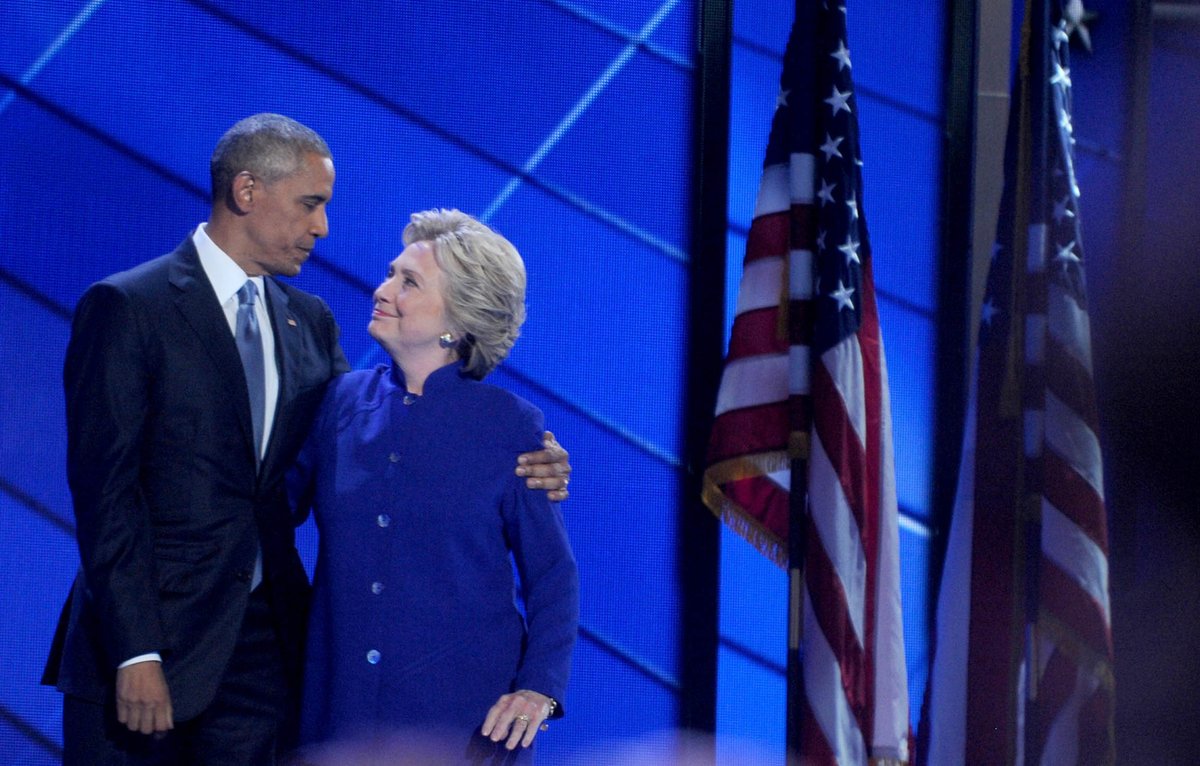

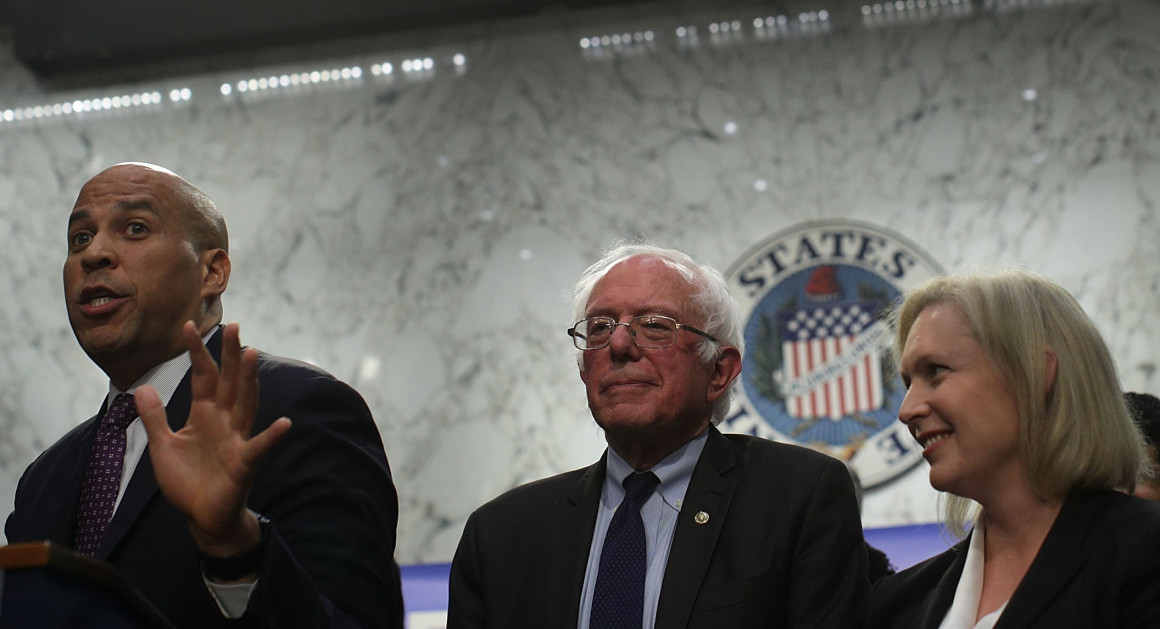
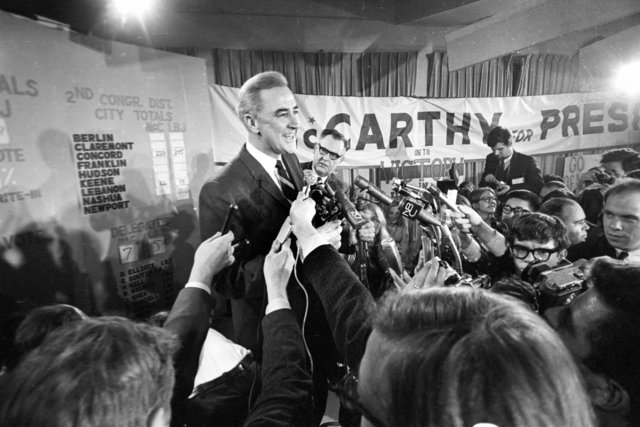
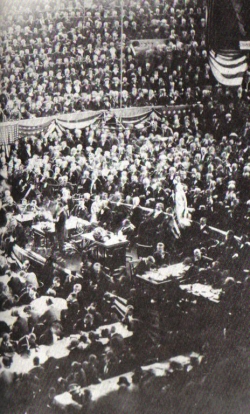
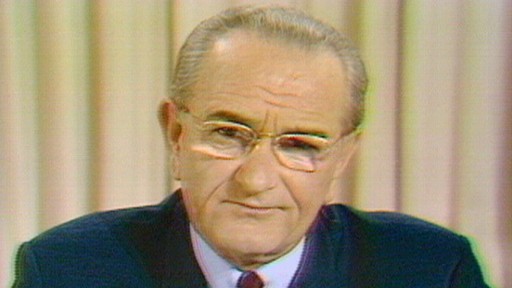

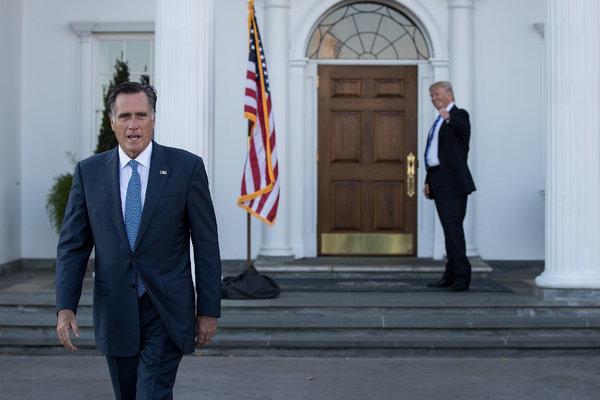


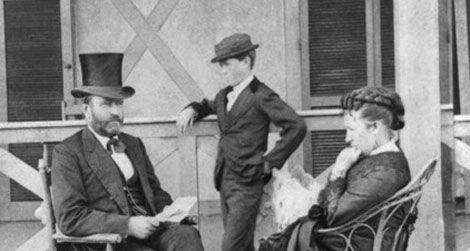
 Their first meeting was auspicious. In his biography of her husband, Ron Chernow writes that it became family lore among the Dents. In their telling, Julia Grant paid a courtesy call on Mary Lincoln, only to find that the First Lady “expected [Julia] to treat her like royalty.” Mary Lincoln is infamous for her wild rages, but she had special reasons to dislike the Grants–she suspected that Ulysses S. Grant wanted her husband’s job, and he had allowed her son Robert to join him as an aide-de-camp, against her wishes.
Their first meeting was auspicious. In his biography of her husband, Ron Chernow writes that it became family lore among the Dents. In their telling, Julia Grant paid a courtesy call on Mary Lincoln, only to find that the First Lady “expected [Julia] to treat her like royalty.” Mary Lincoln is infamous for her wild rages, but she had special reasons to dislike the Grants–she suspected that Ulysses S. Grant wanted her husband’s job, and he had allowed her son Robert to join him as an aide-de-camp, against her wishes.
